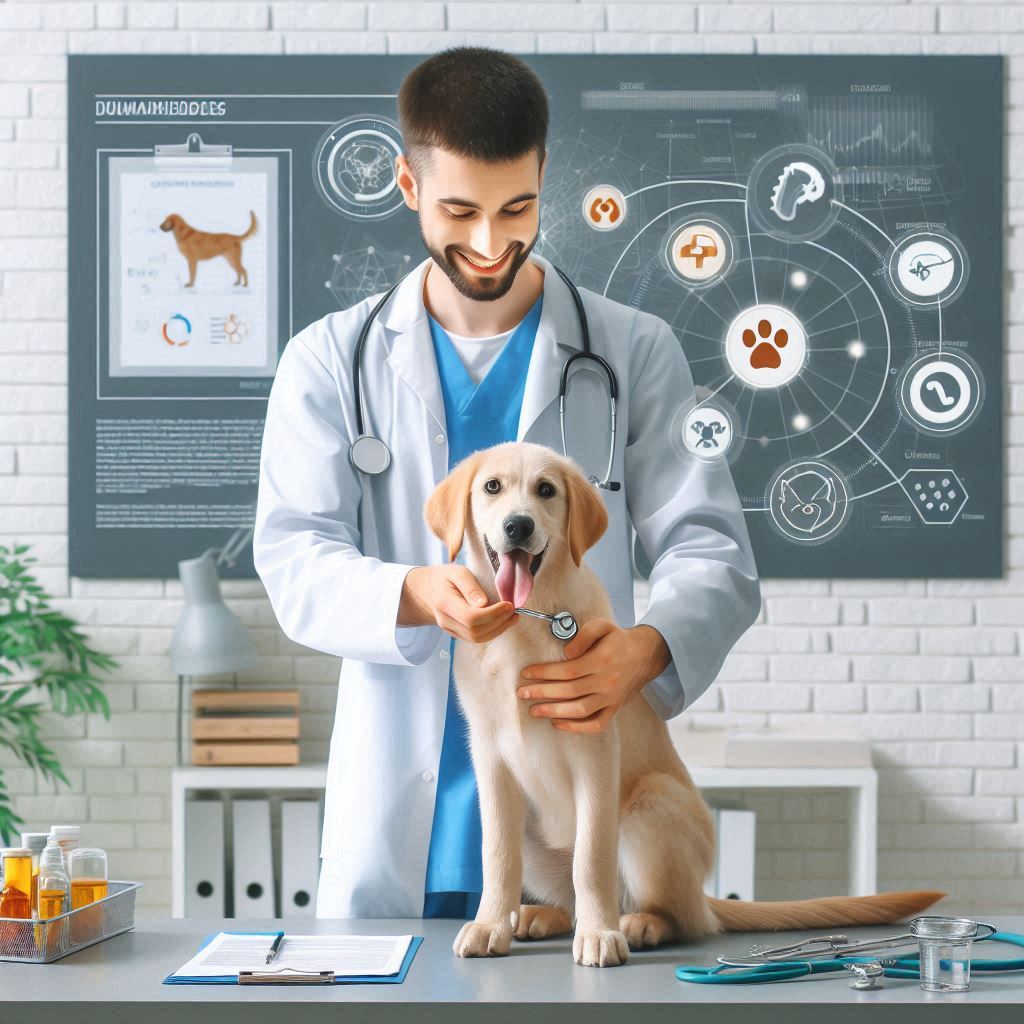Introduction
Regular veterinary visits are essential for maintaining the health and well-being of your pet. Just like humans, pets need routine medical care to catch potential health issues early, ensure they are up-to-date on vaccinations, and receive professional advice on diet, behavior, and overall care. This comprehensive guide will explore the numerous benefits of routine veterinary care, the importance of preventative medicine, and how to make the most of each visit.
1. Preventative Care and Early Detection
Understanding Preventative Care
Preventative care involves measures taken to prevent diseases before they occur. This includes vaccinations, regular health screenings, and lifestyle advice tailored to your pet’s specific needs.
Early Detection
Early detection of health issues can make a significant difference in treatment outcomes. Regular vet visits allow for early diagnosis of conditions such as:
- Cancer: Early detection can improve prognosis and treatment options.
- Heart Disease: Identifying heart issues early can help manage the condition and prevent complications.
- Diabetes: Early diagnosis can lead to better management and control of blood sugar levels.
- Kidney Disease: Detecting kidney issues early can slow progression and improve quality of life.
Benefits of Early Detection
- Improved Treatment Outcomes: Early intervention often leads to more effective treatment.
- Cost Savings: Treating conditions early can be less expensive than managing advanced diseases.
- Enhanced Quality of Life: Early treatment can reduce pain and discomfort, improving your pet’s overall well-being.
- Longer Lifespan: Regular vet visits contribute to a longer, healthier life for your pet.
2. Vaccinations and Immunizations
Importance of Vaccinations
Vaccinations protect pets from serious and potentially fatal diseases. They stimulate the immune system to produce antibodies against specific pathogens, providing immunity.
Core Vaccines
Core vaccines are essential for all pets due to the severity of the diseases they prevent and the risk of exposure:
- Dogs: Rabies, Distemper, Parvovirus, Adenovirus.
- Cats: Rabies, Feline Distemper (Panleukopenia), Feline Herpesvirus, Calicivirus.
Non-Core Vaccines
Non-core vaccines are recommended based on your pet’s lifestyle, environment, and risk of exposure:
- Dogs: Bordetella, Lyme Disease, Leptospirosis, Canine Influenza.
- Cats: Feline Leukemia Virus (FeLV), Bordetella.
Vaccination Schedule
- Puppies and Kittens: Begin vaccinations at 6-8 weeks old, with boosters every 3-4 weeks until 16 weeks.
- Adult Pets: Annual or triennial boosters, depending on the vaccine and your vet’s recommendation.
3. Parasite Prevention
Common Parasites
- Fleas: Cause itching, allergic reactions, and can transmit tapeworms.
- Ticks: Transmit diseases such as Lyme disease and Ehrlichiosis.
- Heartworms: Spread by mosquitoes, heartworms live in the heart and lungs.
- Intestinal Worms: Include roundworms, hookworms, and tapeworms.
Importance of Parasite Prevention
Parasites can cause significant health issues, including anemia, skin infections, and organ damage. Regular vet visits ensure your pet is on an appropriate preventative regimen.
Preventative Measures
- Flea and Tick Preventatives: Topical treatments, collars, and oral medications.
- Heartworm Preventatives: Monthly oral medications or annual injections.
- Regular Deworming: Routine fecal exams and deworming protocols to prevent intestinal worms.
4. Dental Health
Common Dental Problems
- Periodontal Disease: Inflammation and infection of the gums and supporting structures of the teeth.
- Tooth Decay: Cavities caused by bacterial infection.
- Gingivitis: Early stage of periodontal disease characterized by red, swollen gums.
- Tooth Fractures: Often caused by chewing on hard objects.
Importance of Dental Care
Poor dental health can lead to pain, tooth loss, and systemic infections. Regular dental check-ups are crucial for maintaining your pet’s oral health.
Preventative Measures
- Regular Brushing: Brush your pet’s teeth daily or at least several times a week.
- Dental Chews and Toys: Help reduce plaque and tartar buildup.
- Professional Cleanings: Annual or bi-annual cleanings performed by your vet.
5. Nutritional Guidance
Importance of Proper Nutrition
Proper nutrition is vital for your pet’s overall health and longevity. Different life stages, breeds, and health conditions require specific dietary needs.
Benefits of Nutritional Guidance
- Weight Management: Prevent obesity and related health issues.
- Allergy Management: Identify and manage food allergies.
- Support for Health Conditions: Tailored diets for conditions such as kidney disease, diabetes, and heart disease.
- Improved Coat and Skin Health: Proper nutrition promotes a healthy coat and skin.
Regular Assessments
During vet visits, your vet can assess your pet’s weight, body condition, and nutritional status, providing recommendations for diet adjustments as needed.
6. Behavioral Health
Common Behavioral Issues
- Anxiety and Stress: Separation anxiety, noise phobias, and generalized anxiety.
- Aggression: Towards people or other animals.
- Destructive Behavior: Chewing, digging, and scratching.
- House Training Issues: Inappropriate elimination.
Importance of Addressing Behavioral Issues
Behavioral issues can affect your pet’s quality of life and your relationship with them. Early intervention and professional guidance are essential.
Role of Regular Vet Visits
- Behavioral Assessments: Identifying underlying health issues contributing to behavior problems.
- Training Recommendations: Providing resources and referrals for professional training and behavior modification.
- Medication: Prescribing medication for severe anxiety or other behavioral issues.
7. Senior Pet Care
Common Health Issues in Senior Pets
- Arthritis: Joint inflammation causing pain and mobility issues.
- Cognitive Dysfunction: Similar to dementia in humans, causing confusion and behavioral changes.
- Kidney Disease: Reduced kidney function common in older pets.
- Heart Disease: Increased risk of heart problems in senior pets.
Importance of Senior Pet Care
Senior pets require special attention to manage age-related health issues and maintain their quality of life.
Preventative Measures
- Regular Health Screenings: More frequent vet visits to monitor for age-related conditions.
- Diet Adjustments: Tailored diets to support joint health, kidney function, and weight management.
- Exercise and Mobility Support: Appropriate exercise to maintain mobility and prevent obesity.
8. Spaying and Neutering
Benefits of Spaying and Neutering
- Prevent Overpopulation: Reduces the number of unwanted pets and euthanasia rates.
- Health Benefits: Decreased risk of certain cancers and infections.
- Behavioral Benefits: Reduced aggression, marking, and roaming behaviors.
Timing
- Cats and Dogs: Typically spayed or neutered between 4-6 months of age, but consult with your vet for the best timing based on your pet’s breed and health.
9. Emergency Preparedness
Importance of Knowing When to Seek Emergency Care
Understanding the signs of a medical emergency can save your pet’s life. Regular vet visits help you become familiar with your pet’s normal behavior and health, making it easier to recognize when something is wrong.
Common Signs of a Medical Emergency
- Difficulty Breathing: Labored or rapid breathing, wheezing, or gasping.
- Severe Bleeding: Uncontrolled bleeding from any part of the body.
- Seizures: Any seizure lasting more than a few minutes or multiple seizures in a short period.
- Ingestion of Toxic Substances: Ingesting substances like chocolate, xylitol, or certain plants.
- Sudden Lameness: Inability to use a limb or sudden, severe pain.
- Unconsciousness: Unresponsive or unconscious state.
Preventative Measures
- First Aid Knowledge: Learn basic pet first aid and CPR.
- Emergency Kit: Keep a pet first aid kit and emergency contact numbers readily available.
- Routine Vet Visits: Regular check-ups to keep your pet in good health and reduce the risk of emergencies.
10. Building a Relationship with Your Vet
Importance of a Good Vet Relationship
A strong relationship with your vet ensures open communication, trust, and better care for your pet. Your vet becomes familiar with your pet’s health history, making it easier to detect and treat issues.
Tips for Building a Good Relationship
- Open Communication: Be honest and thorough when discussing your pet’s health and behavior.
- Regular Visits: Schedule and keep regular appointments.
- Follow Recommendations: Adhere to your vet’s advice and treatment plans.
- Ask Questions: Don’t hesitate to ask questions about your pet’s health, treatments, or behavior.
11. Specialized Care
When to Seek Specialized Care
Some health issues require the expertise of a specialist, such as a dermatologist, cardiologist, or behaviorist. Regular vet visits help identify when specialized care is needed.
Types of Specialists
- Dermatologists: For skin and coat issues.
- Cardiologists: For heart-related problems.
- Orthopedists: For joint and mobility issues.
- Behaviorists: For severe behavioral problems.
Benefits of Specialized Care
- Expert Diagnosis and Treatment: Specialized knowledge and equipment


